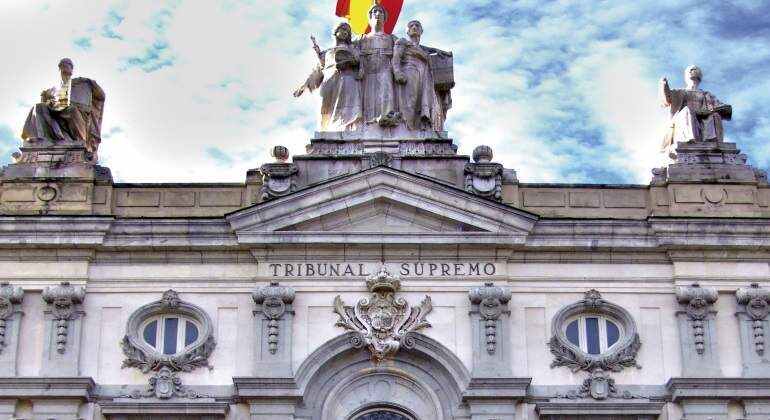
Spanish Supreme Court Magistrates Study The Legal Weaknesses Of Pardons
Various magistrates of the Supreme Court consulted by the Economist insisted on the revision of the pardons to those convicted of the procés under the figure of self-pardon. This is a figure established in article 102.3 of the Constitution that expressly prevents the Government from granting pardons.
In the report in which the Criminal Chamber declared against pardons, it pointed to the possibility that this option could also be interpreted by autonomous governments. And even more so when the parties of those leaders are the mainstay of the central Executive. The magistrates understand that the purpose of these pardons is to stay in power, which would be illegal and, while waiting for the resources announced from various fronts to arrive, they are studying this route of interpretation.
Government sources explained yesterday to elEconomista that an extensive interpretation of this article cannot be made by expanding it to the Autonomous Communities and that, in addition, there are precedents such as that of former Cantabrian president Juan Hormaechea (member of the Popular Alliance and PP), convicted of embezzlement of funds public and pardoned by the Government of Felipe González in 1995 and by that of José Luis Rodríguez Zapatero in 2011.
The magistrates consulted consider that it could be less plausible, for the pardons to be annulled for legal reasons, that it be interpreted as a joint and not individual pardon. Sources from the Ministry of Justice commented to elEconomista that, although there are coinciding parts, in all the files an effort has been made to individualize them.
Officially, the Government’s argument for granting the grace measure is that it is of “public utility” in favor of coexistence and harmony and that it serves as a basis for redirecting the Catalan political conflict within the framework of the law.
In this sense, the state Executive uses the conditions applied to the nine pardoned procés leaders – who maintain their disqualification from holding public office and must serve the pending sentence if they repeat serious crimes within a period of up to six years – as a way to discourage a new attempt by the Catalan independence movement to opt for illegal actions.
More self-government
The will for dialogue from Moncloa and the Palau de la Generalitat was once again expressed, but the positions defended by both parties remain as far apart as in recent years on what should be the subject of debate to achieve understanding. Thus, the Spanish president, Pedro Sánchez, advocated unity: “Spanish society wants a prosperous, plural and supportive Catalonia with a high degree of self-government.
A Catalonia without Spain would neither be European nor prosperous.” On the contrary, the Catalan president, Pere Aragonès, reaffirmed his request to go beyond pardons and end the “repression” by applying amnesty to all those involved in legal cases for the procés, as well as holding a referendum agreed with the State and with international endorsement.
This point was rejected by the Minister of Finance and Government Spokesperson, María Jesús Montero, in the press conference after the Council of Ministers that approved the pardons. Thus, he asked the Catalan government to raise “viable” issues at the Dialogue Table in order to achieve more self-government within the Constitution and the legal framework, because otherwise they will only generate more “immobility”, “paralysis” and “frustration” , reported Ep.
Sánchez stressed that the pardons do not require that the beneficiaries “must change their ideas”, because these people “never” were condemned for their ideas, but for their acts “contrary to democratic legality”, although from the independence movement they insisted on their thesis that there was no crime.
One of the voices that recalled him was Aragonès in an institutional statement accompanied by the entire Government, in which he claimed that in the autonomous elections of February 14 the independence movement exceeded 50% of the vote, so it was found that there is a majority in Catalonia favorable to independence, and that the pardoned “leave with the reinforced will to build a Catalan republic.”
For the moment, and while the independence movement persists in resorting to international justice, the Government continues to work on a reform of the Penal Code to “Europeanize” crimes that have become obsolete or outdated, such as Sedición, which weighed on those pardoned, said Montero .


